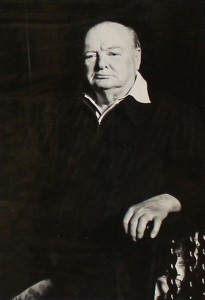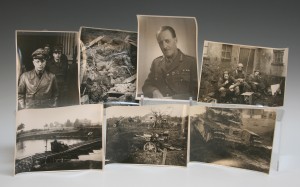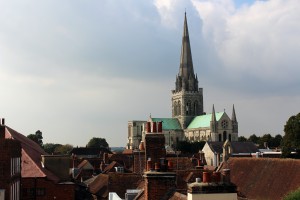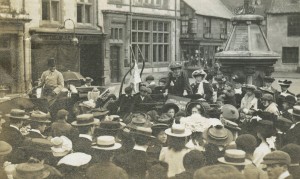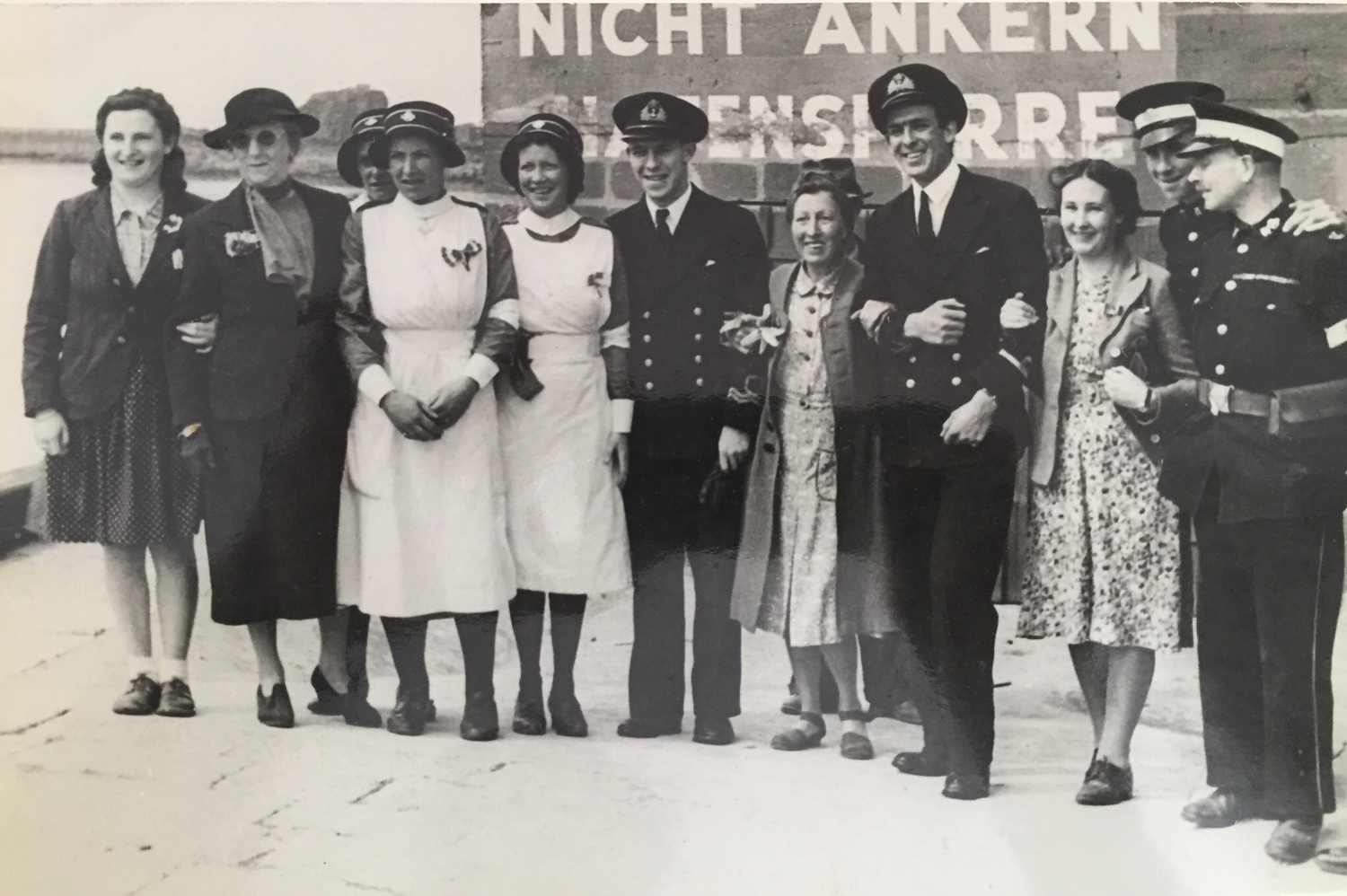
On the 7th May 1945 the Germans surrendered. The Church Bells rang out and on the 8th May 1945 people poured onto the streets of the towns and villages of Sussex to celebrate VE Day, the Allied Victory in Europe.
Winston Churchill spoke to the crowds in Whitehall “God Bless you all. This is your Victory! It is the victory of the cause of freedom in every land. In all our long history we have never seen a greater day than this. Everyone, man or woman, has done their best. Everyone has tried. Neither the long years, nor the dangers, nor the fierce attacks of the enemy, have in any way weakened the unbending resolve of the British nation. God bless you all.”
Churchill would announce in his radio broadcast that “…our dear Channel Islands are to be freed today”.
As a stark reminder as to what had been fought for the Channel Islands remained under German occupation until the 9th May 1945 when they were finally liberated.
My wife, Teresa, is a Channel Island girl whose family can trace their roots on the island of Jersey back to medieval times. Her aunt Enid celebrated her 86th birthday last weekend. We telephoned to wish her a happy birthday and our conversation turned to the war and her late husband uncle Maurice. Enid said “The Germans banned all clubs and gatherings even the Girl Guides but church was allowed. The churches were packed during the war, we had forms in the aisles. I worshipped with the Methodists up at Sion. Everyone had someone away. We didn’t know if they were alright so it became a tradition to finish our services with the hymn ‘God be with you till we meet again’. The Germans allowed us to sing any hymn from the English Hymnal so on special occasions we sang ‘God save our gracious King’. They put a stop to that when they found out. You tried to defy the Germans whenever you could.
You felt really safe before curfew, the Germans were very strict with the discipline of their troops. They weren’t feeding their prisoners, Russians and POWs. They let them out at night to scavenge. Some people hid [the prisoners] or fed them on the quiet, others built crystal wireless sets. People split on them and they ended up in prison or were sent to Germany to the camps – they never came back.
We were hungry especially after D-day when we were cut off. We really relied on the Red Cross Parcels that came in on the ships – oh my goodness the parcels were our life line.
Maurice was older than me – eighteen at the end of the war and interested in what was going on – he realised he was witnessing history. Maurice was in the St John Ambulance. They worked with the Red Cross. When the SS Vega came into St Helier harbour on the 9th May Maurice was there to unload the Red Cross parcels onto trolleys. The farmers came with their horses to pull the trolleys into the sheds. All of a sudden a little boat came in with the first British Naval officers, so Maurice and his friend ran down the steps to meet them and shook their hands. A car was found and the advance party were taken to the Pomme d’Or hotel where the expectant, cheering crowds were waiting.” Enid paused and concluded “It’s all history now.”
Like in Sussex flags and bunting were found and hung up. The celebrations were heartfelt providing a moment of respite and hope. Many had lost loved ones oversees and at home, and the war against Japan was far from over. But the first victory in the cause of freedom in every land had been won.
